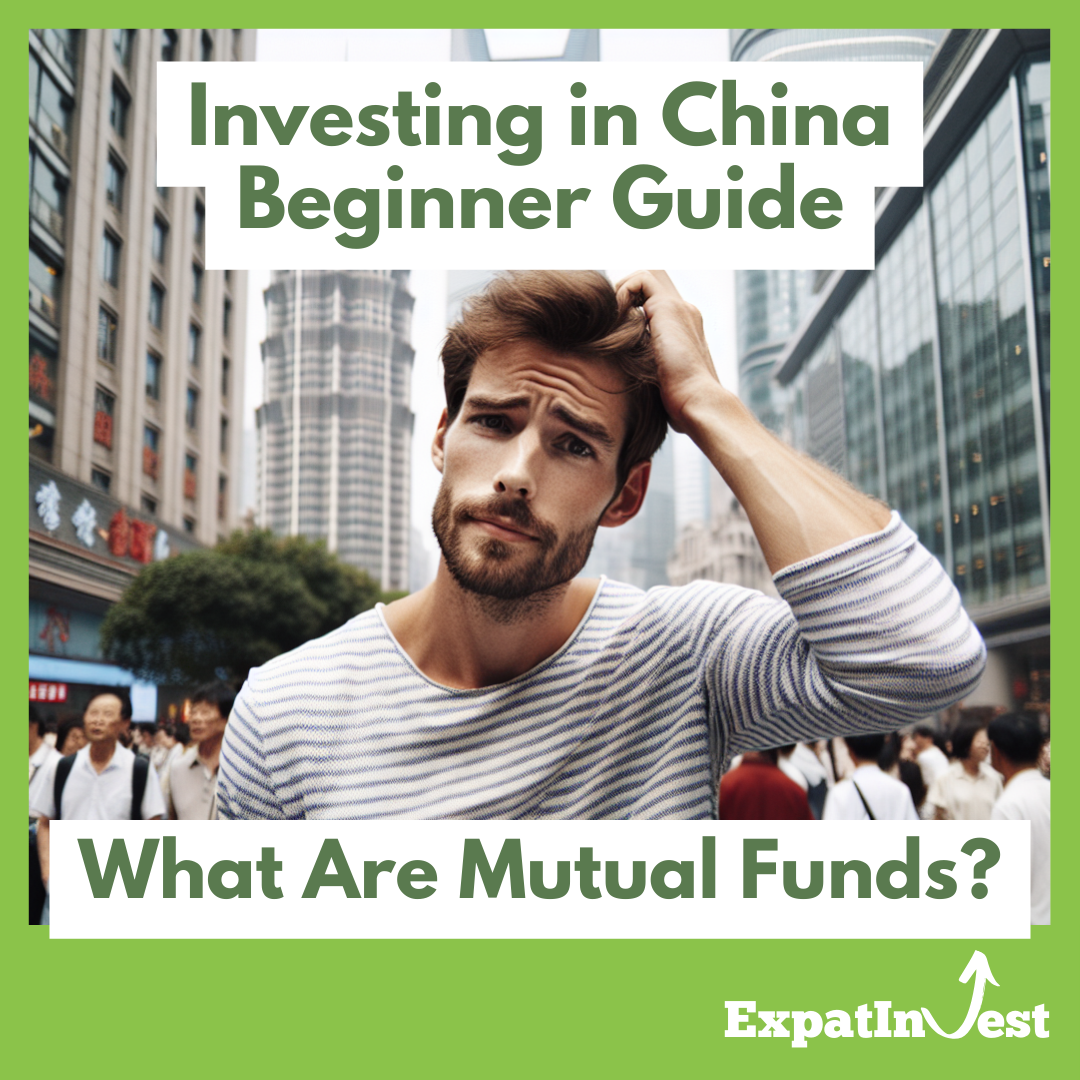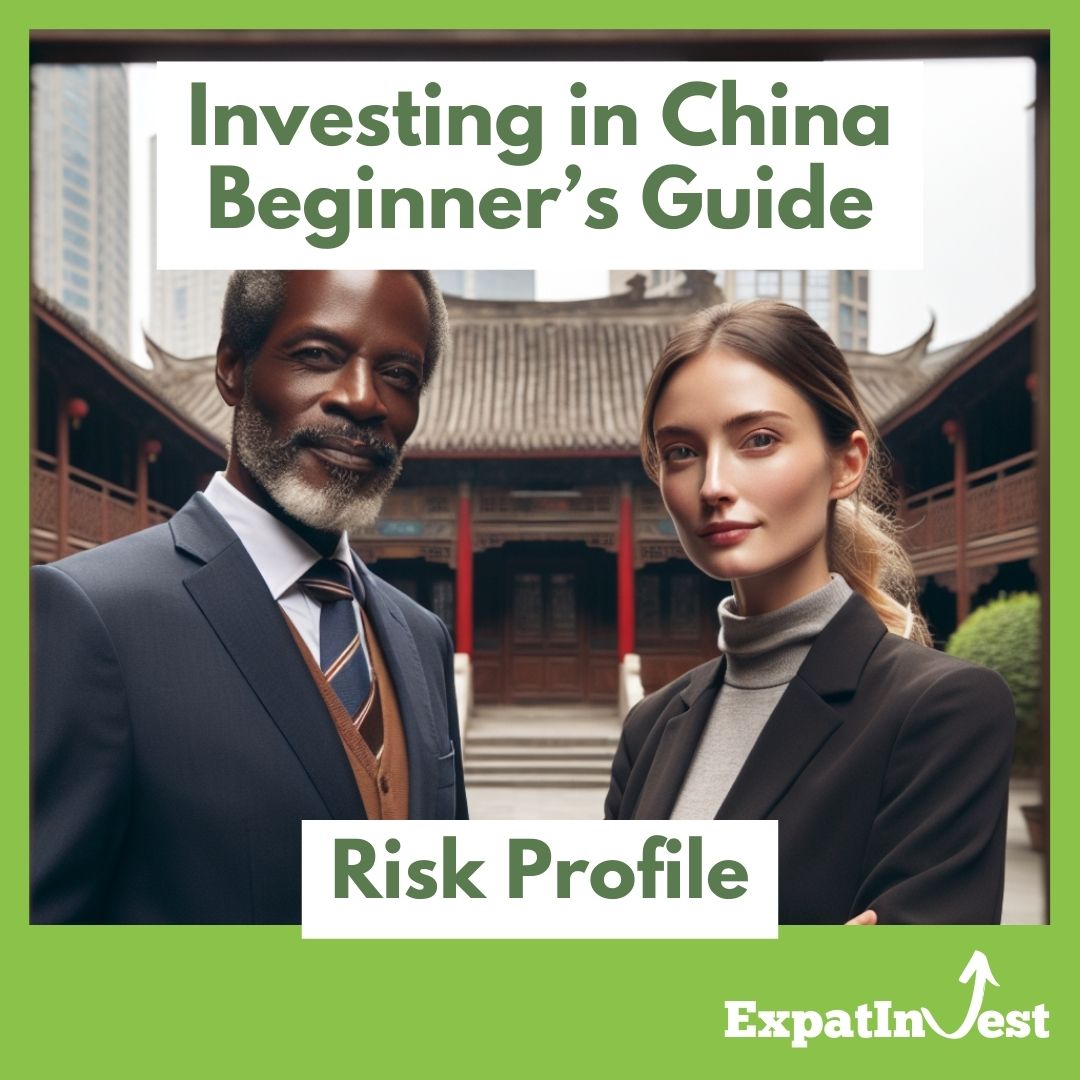Mutual funds can be an attractive investment option for China expats. There are different types of mutual funds available in the market, each with its own set of advantages and disadvantages. It is important to understand the features of each type of mutual fund before investing. In this blog, we will lay out a bird’s eye view of different types of funds. A kind reminder this article provides basic general information and is not financial advice.
1. Equity Funds
Equity funds are mutual funds that invest primarily in stocks. These funds offer the potential for high returns but also come with a higher risk.
Pros
– High growth potential: Equity funds offer investors the potential for high returns, which can be beneficial for expats seeking high returns on their investment.
– Professional management: These funds are managed by professionals who have expertise in selecting stocks, which can be helpful for people with limited knowledge of the stock market.
– Diversification: Equity funds invest in a wide range of stocks, which can provide diversification to the portfolio of China expats.
Cons
– High risk: Equity funds are high-risk investments as they are susceptible to market fluctuations and changes in the economy, which may not be ideal for expats with a lower risk tolerance.
– Volatility: The value of equity funds can fluctuate significantly over time, which may cause stress for those who are not comfortable with market volatility.
– Higher fees: These funds come with higher expense ratios due to the active management involved, which can impact the overall returns, adding to the financial burden of China expats.

It is crucial to invest according to your risk profile! Do not take risks you are not comfortable with or cannot afford.
2. Fixed-Income Funds
Fixed-income funds are mutual funds that invest primarily in fixed-income securities, such as bonds and treasury bills. These funds, such as Managed Debt Mix, offer stable returns but come with a lower growth potential.
Pros
– Low risk: Fixed-income funds are considered a low-risk investment option as they offer stable returns, which can be beneficial for China expats with a low-risk tolerance.
– Income generation: These funds provide a regular stream of income through interest payments, which can be helpful for those looking for a source of regular income.
– Diversification: Fixed-income funds invest in a wide range of securities, which can provide diversification to the portfolio of expats.
Cons
– Limited growth potential: Fixed-income funds tend to offer lower returns compared to equity funds, limiting the growth potential for investors, which may not be ideal when seeking high returns.
– Interest rate risk: The value of fixed-income securities can be affected by changes in interest rates, which may affect the returns of fixed-income funds.
– Higher fees: These funds come with higher expense ratios due to the active management involved, which can impact the overall returns, adding to the financial burden of China expats.
3. Hybrid Funds
Hybrid funds, also known as balanced funds, are mutual funds that invest in a mix of equity and fixed-income securities such as New Income Stock & Bond Mix and the Conservative Bond & Stock Blend. These funds offer a balance between growth potential and stability.
Pros
– Balanced portfolio: Hybrid funds offer a balanced portfolio of both equity and fixed-income securities, which can be beneficial for China expats seeking a balance between growth potential and stability.
– Professional management: These funds are managed by professionals who have expertise in selecting both equity and fixed-income securities, which can be helpful for China expats with limited knowledge of the market.
– Diversification: Hybrid funds invest in a wide range of securities, which can provide diversification to the portfolio of China expats.
Cons
– Limited growth potential: Hybrid funds tend to offer lower returns compared to equity funds, limiting the growth potential for investors, which may not be ideal for China expats seeking high returns.
– Higher fees: These funds come with higher expense ratios due to the active management involved, which can impact the overall returns, adding to the financial burden of China expats.
– Dependence on fund managers: The performance of hybrid funds is highly dependent on the fund manager’s ability to manage the asset allocation between equity and fixed-income securities effectively, which may be a concern for China expats investing in a foreign market.
4. Index Funds
Index funds are passively managed mutual funds that replicate the performance of a stock market index, such as CSI 300 Index Enhanced, the S&P 500 RMB Index, the Nasdaq 100 RMB Index, and the Beijing Stock Exchange 50 Index. These funds aim to match the returns of the index they track and have lower expense ratios compared to actively managed funds, making them a popular choice among China expats.
Pros
– Lower fees: Index funds have lower expense ratios compared to actively managed funds, making them a cost-effective investment option for China expats.
– Diversification: These funds offer investors a diversified portfolio as they invest in a broad range of securities included in the index they track, which can be helpful for expats investing in a foreign market.
– Easy to understand: Index funds are relatively easy to understand and suitable for novice investors who want to start investing, which may be beneficial for those with less experience in investing.
Cons
– Limited growth potential: Index funds aim to replicate the performance of the index they track, limiting the growth potential compared to actively managed funds, which may not be ideal for China expats seeking high returns.
– No flexibility: These funds do not offer investors the flexibility to make changes in their portfolio as the fund manager simply replicates the index’s performance, which may not fit the investment goals of some people.
– Lag behind the index: Due to the fund’s passive nature, it may not be able to match the exact performance of the index, resulting in slightly lower returns, which may be a concern for China expats seeking precise returns.
5. Specialty Funds
Specialty funds are mutual funds that focus on a specific investment theme or sector, such as technology, healthcare, or energy. These funds invest in companies that are part of the chosen theme or sector and are suitable for investors who want to focus on a specific area of the market, funds like China Information Technology Industry or China Modern Manufacturing Industry may be appealing to China expats looking to invest in an industry or sector they are familiar with.
Pros
– Targeted investment: Specialty funds allow investors to target a specific market segment or theme, providing them with exposure to a particular industry or sector, which may be beneficial for China expats looking to invest in a familiar market segment.
– Expert management: These funds are managed by professionals who have in-depth knowledge and experience in the chosen sector or theme, which may be helpful for China expats with little knowledge of the industry or sector they are investing in.
– Growth potential: If the chosen sector or theme performs well, investors have the potential to earn significant returns, which can benefit China expats seeking high returns.
Cons
– High risk: Specialty funds are high-risk investments as they focus on a specific market segment or theme, making them susceptible to market fluctuations and changes in the sector, which may not be ideal for China expats with a lower risk tolerance.
– Limited diversification: These funds have a concentrated portfolio, limiting the diversification compared to other types of mutual funds, which may not be appealing for China expats with a diverse portfolio.
– High fees: Specialty funds come with higher expense ratios due to the active management involved, which can impact the overall returns, adding to the financial burden of China expats.
In conclusion, choosing the right mutual fund depends on your investment goals, risk appetite, and time horizon. It is essential to research and understand the different types of mutual funds and their associated pros and cons before making any investment decisions. Consulting with a financial advisor can also help you make an informed decision based on your specific financial situation.








